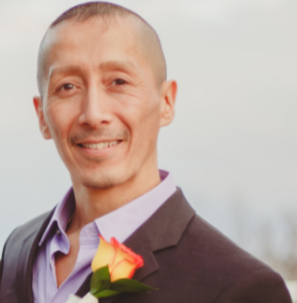Research in Action: Sustainability in the face of climate change
Published by OrilliaMatters.com on Saturday, March 12, 2022.
BY KARI KLASSEN
Lakehead University was approached by Camphill Communities Ontario (CCO) to partner on a research project entitled 'Fostering the Socio-Ecological Resilience of CCO’s Maple Syrup Operation in the Face of Climate Change.'
“One of their mandates is to increase engagement with the community by developing mutually beneficial partnerships,” said Principal Investigator, Dr. Gerardo Reyes, who is also Assistant Professor in the departments of Sustainability Sciences and Biology at Lakehead University.
“They want more people to be aware of the great things that they’re doing, so they reached out to us and asked if we wanted to partner with them to create research that highlights what is going on at Camphill Communities Ontario.”
CCO is a non-profit organization whose mission is to create unique and inspiring residential, vocational and learning opportunities for people with cognitive and developmental disabilities in both rural and urban settings in Simcoe County.

Reyes is supervising Breanne Lywood, a graduate student from the Biology department at Lakehead University.
“Breanne’s main role is to try and find ways to ensure that (CCO’s) maple syrup operation will be around as climate changes. We’re looking to develop adaptation strategies that can be employed to ensure that they can maintain or even enhance the production of maple syrup,” Reyes said.
“The CCO’s maple syrup operation is a social enterprise that’s actually run by and managed for CCO companions—that’s how adults with intellectual disabilities associated with CCO are addressed," said Reyes.
"Its success is not just about generating profit and revenue to fund other CCO programming, it’s also predicated on helping individual well-being by fostering the feeling that we are all contributing members of society. It’s meaningful work as people of all abilities are working together to make the sugarbush operation run smoothly.”
While there are other components and participants involved in the Camphill project, Reyes and Lywood are working specifically with the maple syrup enterprise. Lywood is closely evaluating the Camphill operation and is comparing findings with what other local maple syrup producers’ operations are doing.
“There are several key factors that impact the production of maple syrup,” Lywood said. “So myself, an undergrad student, and a couple of the companions will be evaluating the importance of these factors within the sugarbush at Camphill and those of other regional producers. We’ll be looking at things like temperature, precipitation, snow cover, foliage health, soil conditions, and the overall health of the sugarbush.”
As this project is a social as well as an ecological venture, the team will also be asking companions about the benefits and drawbacks associated with working in the maple syrup operation.
“We’ll be determining what companions like or dislike about the various jobs and tasks available to them,” Lywood said. “We’ll work on implementing those likes into the actual adaptation strategy that we hope to create for Camphill Communities. It’s really exciting to have the different natural and social science components together in this project.”
Reyes explained that the goal is to put all the elements gathered by their research team together to create a management plan for Camphill.
“We want to provide CCO with options and adaptation strategies. For example, what if novel insect pests threaten to defoliate the entire stand? What can we do? What will happen if the ratio of maples to non-syrup producing species changes? How is the overall health of the stand impacted by climate change and how will any or all these factors ultimately impact production? How will that impact the role of companions in maple syrup production?”
The dual natural science and social science nature of this pilot study is unusual, Reyes said.
“It’s usually one or the other. If we’re successful, we’re perhaps creating a template for other research groups to follow on how to address important socio-ecological questions with involvement of researchers from multiple domains," he explained.
"Maybe this will inspire other research teams to develop an interdisciplinary approach, and thus, tackle problems in a more holistic manner and provide more opportunities to learn from each other.”
The project has two funders, to date: CCO and the Social Science and Humanities Research Council (SSHRC) Partnership Engage Grant.
The project is slated to run for two years with the hope that a partnership between Lakehead University and CCO will be ongoing.
“CCO is great to work with and has been really receptive and open to having us be a part of their community,” Reyes said. “It’s been a great partnership so far. This project is a starting point that hopefully will spur the development of other mutually beneficial, long-term joint research and education ventures.”

